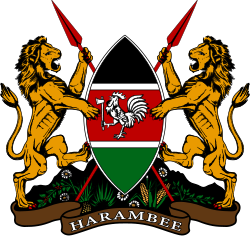Parts of this article (those related to the parties) need to be updated. The reason given is: The 2022 Kenyan general election has changed the seat numbers for the 13th Parliament of Kenya.(August 2022) |
 |
|---|
This article lists political parties in Kenya. [1]